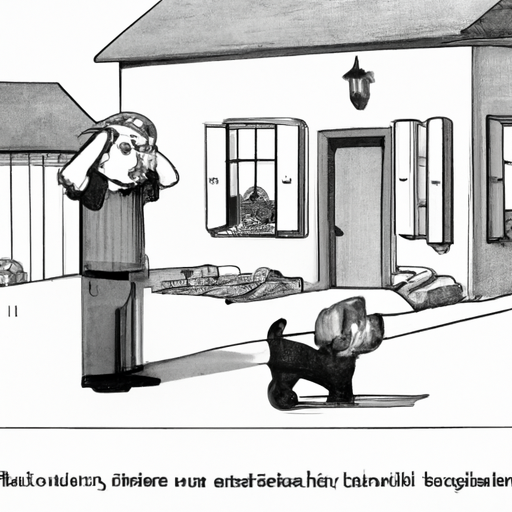As a caregiver, we understand that you’re not just dealing with human beings but also with their furry friends. Understanding your pet’s behavior is essential to maintaining a harmonious home. If you’re dealing with a dog that won’t stop barking, this guide will help you understand why it’s happening and how you can intervene.
1. Understanding Why Dogs Bark
First and foremost, it’s important to understand that barking is a normal behavior for dogs. Dogs bark to communicate a variety of feelings such as fear, anxiety, boredom, or even excitement.
Some common reasons for excessive barking include:
- Loneliness or separation anxiety
- Territorial behavior
- Boredom or lack of physical or mental stimulation
- Seeking attention
- Medical issues
2. Identifying the Cause of Excessive Barking
Before you can address your dog’s barking, you need to identify what triggers it. Pay close attention to when and where your dog barks. Does it happen when you leave the house? When strangers approach? When it sees other dogs?
Keeping a barking diary can be beneficial. Note down:
- Time of barking
- Trigger for barking
- Duration of barking
| Time | Trigger | Duration |
|---|---|---|
| e.g., 8:00 AM | When left alone | 30 minutes |
3. Training Your Dog to Be Quiet
Once you’ve identified the cause, you can work on training your dog. This might involve teaching them a “quiet” command or redirecting their attention when they start to bark.
Here are a few steps:
- Use a firm but calm voice to say “quiet”.
- Reward your dog when they stop barking with a treat or praise.
- Repeat this process consistently until your dog learns to associate the command with being quiet.
4. Providing Physical and Mental Stimulation
A bored dog is often a loud dog. Make sure your dog gets plenty of physical exercise, such as walks or playtime in the yard. Mental stimulation is just as important – try puzzle toys or training exercises.
5. Addressing Separation Anxiety
If your dog barks excessively when you’re not home, they may be dealing with separation anxiety. This can be a complex issue to resolve and may require the help of a professional. Options include behavior modification training or even medication in severe cases.
6. Consult with a Vet or Dog Behaviorist
If you’ve tried everything and your dog is still barking excessively, it may be time to consult with a professional. A vet can rule out any potential medical issues, while a dog behaviorist can provide additional insight into why your dog is barking and how to stop it.
7. Be Patient and Consistent
Remember, changing behavior takes time. Be patient and consistent with your training. It’s important to always reinforce positive behavior and avoid punishing your dog for barking. This can often make the problem worse.
8. FAQ
Below are some frequently asked questions about excessive dog barking.
Q: Is my dog’s barking normal or excessive?
A: This can depend on a variety of factors, including breed and environment. If your dog’s barking is causing distress or disrupting your life, it’s worth addressing.
Q: Can certain breeds be more prone to barking?
A: Yes, some breeds are more vocal than others. However, any dog can develop a problem with excessive barking.
Q: How long will it take for my dog to stop barking?
A: The length of time it takes for your dog to stop barking can vary. It depends on the cause of the barking and your consistency in addressing it.
Remember, as a caregiver, your role is not just to care for your human clients, but also their pets. Understanding why a dog won’t stop barking and knowing how to address it can go a long way in creating a peaceful environment.



